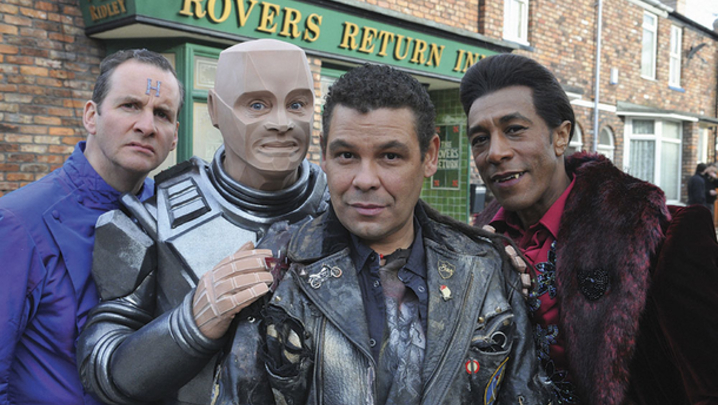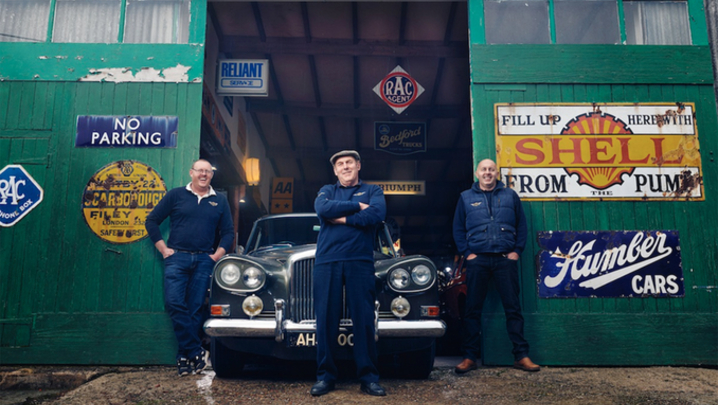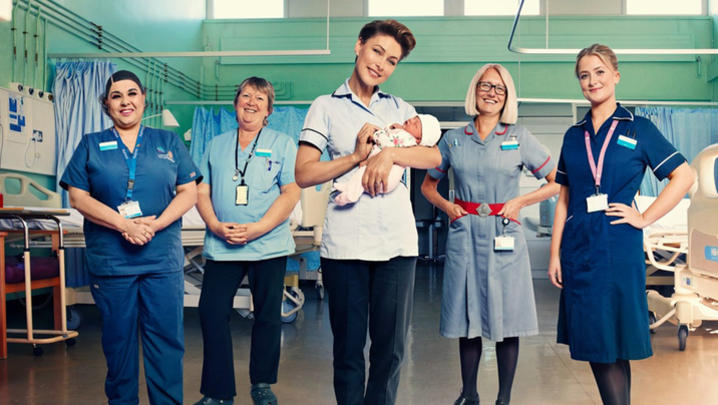Tara Conlan catches up with UKTV Chief Executive Darren Childs, who thinks TV companies should ban ‘sweatshop economics’
Five years ago, UKTV was seen as the home of the BBC’s archive shows and the owner of a channel called Dave. Everyone in the industry thought Dave was named after the company’s former CEO, David Abraham.
Fast forward to today. The 300-strong company that began life as a multichannel archive business 20 years ago has grown. It now runs 11 channels, ranging from natural-history channel Eden to Good Food, and has a commercial television market share of 9.3%.
UKTV is also commissioning original shows that other broadcasters envy, such as Crackanory, and attracting established names such as Maxine Peake, Maureen Lipman and John Hannah.
CEO Darren Childs modestly says it was all part of the company’s five-year transformation plan. In late 2010, soon after he arrived at UKTV, Childs began having conversations about strategy. At that time, joint-owner Virgin had decided to sell up.
US company Scripps bought Virgin’s stake in the joint venture with BBC Worldwide for a reported £339m. Childs recalls: “Once it had stable ownership and shareholders with a long-term focus on the overall success of the business, UKTV then set itself milestones to reach, including [a] move away from being a purely archive business to one that commissioned content that differentiated it from other broadcasters.”
Although, he says, UKTV has been “very lucky – we’ve got the BBC’s archive output” – it was easy to see that “on-demand could be a better way to access archive. So what, therefore, was UKTV’s role as a linear channels business, if technology was going to make archive access much easier?”
"It’s getting to the point now where people don’t know what to watch any more unless there’s some kind of navigation and recommendation"
Childs was previously Managing Director of BBC Worldwide’s channels and has been a UKTV board member since 2006. He realised, then, that the TV market was changing and that UKTV had to invest in original content.
To do that, it “had to stop doing a lot of the stuff we were doing” and it “needed to become bigger in order to fund that content investment. What’s happened is that, over the past five years, we’ve had record viewership growth for each one of those years.”
The enthusiastic Childs continues: “The great thing is... as we’re making selective bets on content that we’re all passionate [about]... we’re being rewarded by ever-increasing viewership figures, so it feels like we’re being rewarded for doing something right.”
Yet Childs says UKTV does not feel like “we’re at the middle or the end of this journey, we’re just at the beginning. It’s been five years of hard work by the team.”
By his reckoning, “Our portfolio [is] in the same market as Channel 5’s portfolio [and] equal to, if not slightly bigger than, Sky’s portfolio of channels.”
With record profits of £74m this year, UKTV’s shareholders are pleased. There are reports that Scripps offered to buy BBC Worldwide’s stake but was rebuffed.
Aside from how it might affect the long-running contract UKTV has with the BBC for its archive content (like his predecessor Abraham, Childs will not say how long it is, apart from “very”), would it matter if Scripps owned the company outright?
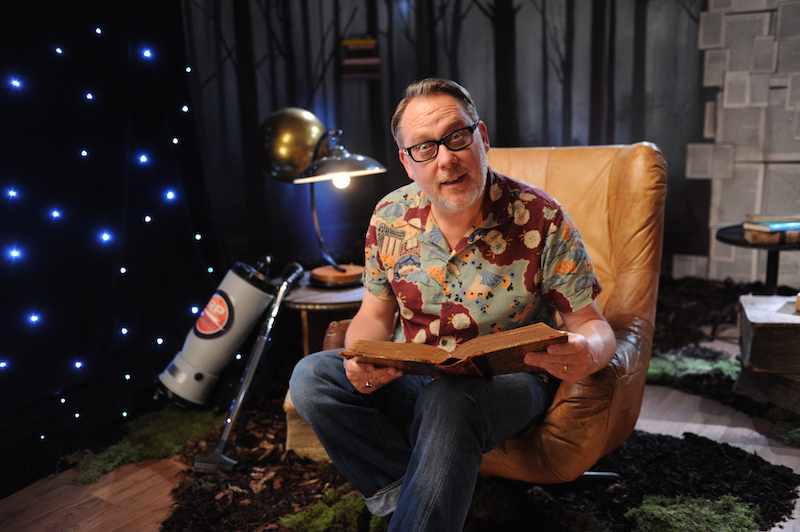
(Credit: UKTV)
He says that it is easy in television to get “distracted” by talk about ownership or regulatory issues: “We’re a small business... we try to spend time focusing on the content and technology side of our business rather than the politics.
“What will end up happening will be a decision for them as owners of the company... did I successfully dodge that question?” he asks with a laugh.
He also chuckles when asked about how cuts at the corporation might affect his programming pipeline: “Another difficult political BBC question. It looks like the PSBs are pulling back in some genres, [including] comedy… but those are decisions they have to make within their own businesses. When people cut back, it creates an opportunity.”
Arguably, Dave is benefiting from the decision to take BBC Three online only. While Top Gear repeats continue to do well in daytime, comedy rules in primetime.
Original shows, such as Taskmaster, in which Greg Davies gets comedians such as Frank Skinner to do absurd things, the semi-improvised David Hasselhoff comedy Hoff the Record and Dave Gorman’s Modern Life is Goodish have all done well and are returning.
They are credited with helping Dave increase its viewership by 6% in 2015, according to UKTV’s figures.
Childs declines to say how much Dave’s budget for original shows is, but claims it is up 70% year on year. He has made the point before that “great IP often gets abandoned” and has, therefore, built on the popularity of the BBC archive on Gold by bringing some of the shows back to life.
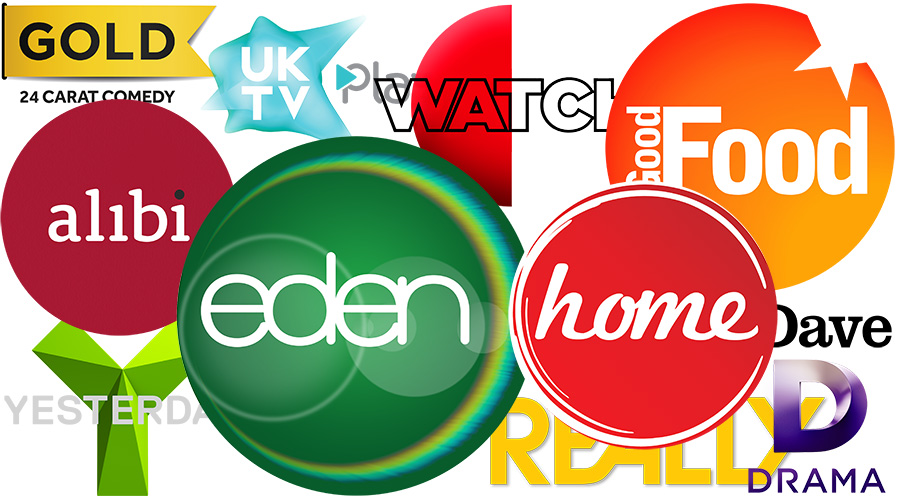
UKTV has ordered two new series of the sci-fi comedy Red Dwarf, which originally aired on BBC Two. The series are currently being filmed back to back and will be transmitted this year and next. It is also premiering the The Comic Strip Presents… The Red Top – the latest episode in the series concerns phone hacking and stars Maxine Peake as a flame-haired newspaper editor.
UKTV is “full of people who really love television”, says its boss, and if there is “something that people think has got life left in it, then our editorial decisions are very much driven by consumers. If we can afford to make it, why not?”
Childs says he wanted to “nail” comedy first before moving on to other scripted shows. There, “rather than make one big bet”, it made three. Two of the shows were made by Matt Lucas’s production company John Stanley Productions: Marley’s Ghosts, starring John Hannah and Sarah Alexander, and Bull, starring Robert Lindsay and Maureen Lipman.
Both got recognition and coverage for the channel. Childs says: “Marley’s was a big success, so I would be surprised if we don’t see another run of that.”
He adds: “We’ve got to take our shots really well; [our] commissioning strategy is not about volume, it’s about quality.” He points out that HBO (he sat on HBO’s European board when he worked at Sony Pictures) commissions only some 100 shows a year.
Now that comedy has been given the UKTV treatment, drama may be next. Childs and his wife (when their nine- and 13-year-old children allow it) are currently watching The Affair.
He agrees that “storytelling” is big at the moment but insists that his channels will not do drama for its own sake: “Next for us is a move into crime procedural drama. Alibi has been having a phenomenal run. We think that it’s ripe for original development.
“Will we invest in drama? It’s inevitable that, at some stage in this company’s future, it will take place. As to when and how, it’s probably too early to say. As long as consumers like it, then we’ll be looking at ways to give it to them.”
UKTV has not just been investing heavily in content – its programme budget has approximately doubled since Childs took over, to “somewhere north” of £125m – but also in “people and video-on-demand”.
With 8,800 hours of programming available, he says UKTV has “enough on our plate” but does not rule out opening more services or closing some of the existing ones.
Childs is particularly proud of the on-demand service UKTV Play. Four years ago, the company lacked a single non-linear component. “We weren’t ready to be part of TV’s future... so we needed to invest in that. Our VoD business is growing at hundreds of per cent, year on year.”
Most entry-level TV jobs are unpaid.… we can’t, as an industry, slag off sweatshops when we’re basically doing the same
A keen cyclist (but not a fanatical middle-aged man in Lycra, he asserts), Childs has seen the challenge of growing UKTV less as a sprint and more like a road race.
A long-term plan is to use continuity and navigation to “knit together the power of the network”, make more use of the UKTV brand and encourage viewers of one channel to try others under the UKTV umbrella.
Before Childs arrived, the company had “removed all of that glue that held the network together.... The previous management set all the channels free right at a time when the whole market was fragmenting and [becoming] even more complicated.
“We’re trying to bring that back together because [not everyone] wants to sit and watch Dave all night, although a lot of people do. They may want to go and watch David Attenborough on Eden.”
“We think part of our job is [getting viewers] to trust our recommendations for content because we think it’s getting to the point now where people don’t know what to watch any more unless there’s some kind of navigation and recommendation... people are being barraged by content and that’s where the brand is critical.”
Although contagiously upbeat about UKTV and its future, the UKTV CEO nevertheless volunteers the idea that his company has been helped recently by a resurgence in the value of TV advertising.
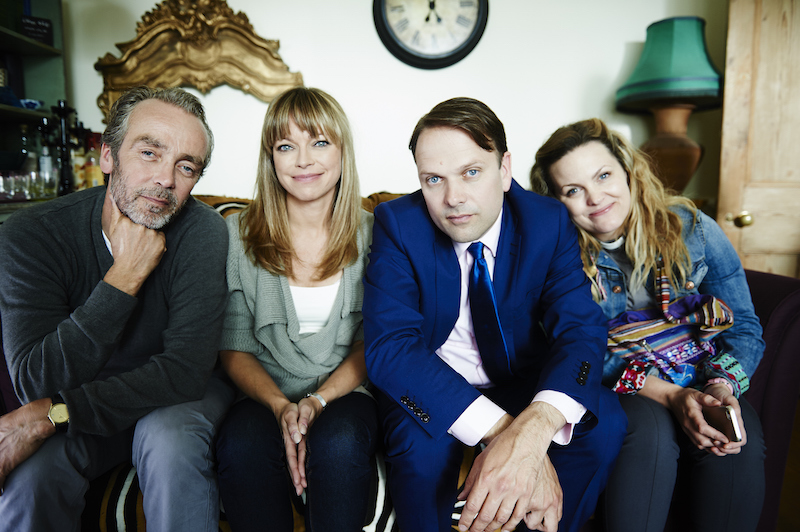
(Credit: UKTV / Ray Burmiston)
Regarding ratings, he says: “If you look at the data, some of those metrics are starting to tail off. I think it is much more about measurement needing to catch up, rather than there being any disinterest from any age group in quality, long-form content.”
As UKTV’s content has grown, its relationship with BBC Worldwide has become more of a “creative partnership”. So much so, that the BBC has bought UKTV content, such as shows featuring the magician Dynamo and David Attenborough’s Natural Curiosities; both will appear on a BBC channel at some stage in the future.
But after five years running UKTV, is Childs planning to move on? “I live in the day.... I’ve got the best job in television, I don’t have the stockmarket to deal with. I don’t have public-service obligations to deal with.
“I don’t have terms of trade and I’ve got really supportive shareholders, so I’m very happy where I am.”
One thing he is keen to do is broaden the range of people who work in television, something he discusses regularly at UKTV.
“We need to change the way TV feels, it doesn’t have to feel large and corporate and ugly. It’s got an access problem,” he believes. “If you come from a working-class family from Yorkshire, as I did, it’s an impenetrable business.
“Not because it’s a class issue – it’s a talent issue. As an industry, we need to be getting talent in; it doesn’t matter where it comes from.... We need to build meritocracies and creative places for people to come and work. Television has not got a great reputation for that.”
UKTV has introduced apprenticeships. All those working on shows made for its channels are paid, rather than employed as unpaid interns.
“Most entry-level TV jobs are unpaid. It’s just not right. We make sure everyone on our shows gets not the minimum wage but the living wage.
“We can’t, as an industry, slag off sweatshops when we’re basically doing the same,” says Childs emphatically. “I’m not interested in sweatshop economics to get television made. I’d rather not have it.
“And there’s enough money in this business for people to get paid a decent salary for their contribution.”




